Surah Al Fatiha Transliteration, Arabic Text, And Translation In English
Advertisements
This soorah, whose seven verses are the most often repeated verses of the Qur’an, introduces some of the most frequently used Names of Allah.
Surah Al Fatiha expresses our heartfelt feeling of gratitude to Allah. The feeling overwhelms, or ought to overwhelm, all sensible people who are willing to ponder over Allah’s providence and His limitless compassion, mercy and justice, visible in different forms and manners in life and in the universe around us.
AI-Faatihah is the greatest surah of the Qur’an. Whoever performs any prayer without reciting in it the essence of the Qur’an’, his prayer will not be accepted.
Summary Of Surah Fatiha
| Name of surah | The Opening or The Opener |
| Number of verses | 7 |
| Place of revealation | Meccan |
| Surah after | Surah Baqara |
| Position | 1st juz |
| Number of words | 25 or 29 |
Surah Fatiha In Arabic
- بِسْمِ اللَّهِ الرَّحْمَٰنِ الرَّحِيمِ
- الْحَمْدُ لِلَّهِ رَبِّ الْعَالَمِينَ
- الرَّحْمَٰنِ الرَّحِيمِ
- مَالِكِ يَوْمِ الدِّينِ
- إِيَّاكَ نَعْبُدُ وَإِيَّاكَ نَسْتَعِينُ
- اهْدِنَا الصِّرَاطَ الْمُسْتَقِيمَ
- صِرَاطَ الَّذِينَ أَنْعَمْتَ عَلَيْهِمْ غَيْرِ الْمَغْضُوبِ عَلَيْهِمْ وَلَا الضَّالِّينَ
Surah Al Fatiha Transliteration
- Bismillaahir Rahmaanir Raheem
- Alhamdu lillaahi Rabbil ‘aalameen
- Ar-Rahmaanir-Raheem
- Maaliki Yawmid-Deen
- Iyyaaka na’budu wa lyyaaka nasta’een
- Ihdinas-Siraatal-Mustaqeem
- Siraatal-lazeena an’amta ‘alaihim ghayril-maghdoobi ‘alaihim wa lad-daaalleen
Surah Fatiha Translation In English
- In the name of Allah, the Most Kind the Most Merciful.
- All praise is due to Allah the Lord of all the worlds;
- The Most Kind the Most Merciful;
- Master of the Day of Judgement.
- You alone we worship and to You alone we turn for help.
- Guide us to the Straight Path.
- The path of those on whom You have bestowed Your Grace; not of those who earned Your anger nor of those who have gone astray.
Surah Fatiha Meaning And Tafsir
Bismillaah-irrahmaan-Nirraheem occurs in the Qur’an before every surah except Surat at-Tawbah, that is, surah nine in the Qur’an.
This aayah has two of the most beautiful names of Allah: ar-Rahmaan and ar-Raheem. Both these names of Allah show how Kind, Merciful and Caring He is!
Advertisements
The word Allah in Bismillaah is the personal Name of Allah. The word ‘hamd‘ means praise and thankfulness.
AI-Hamd means pure praise of Allah. It also includes praise for the gifts and blessings He has given us.
And finally it expresses thankfulness for all the good, which comes from Him, and all the favours we receive from Him.
We start the day, for example, by saying, Praise be to Allah who brought us to life after causing us to die (sleep is like death), and to Him is the Resurrection.’
Allah alone is the One who deserves to be praised and to whom we should be grateful. The Lord of all the worlds means that He is the Master of every single aspect of Life of this world and the afterlife, of everything seen and unseen.
Advertisements
A world (aalam) is something other than Allah, and everything other than Allah is completely subject to Him and in need of Him.
Everything other than Allah is His slave and the result of His blessing.
The ‘Most kind, The Most Merciful.’ We live in Allah’s Mercy. His Mercy, knowledge and forgiveness encompass everything in existence! ‘Master of the Day of Judgement.’
Allah is the Master both in this life and on the Day of Judgement. On that day, He alone will be the Master, and no one will be allowed to speak without His permission.
On that day, those who do right actions will be rewarded, and those who do wrong actions will be punished. The belief of accountability in the Aakhirah (Hereafter) is the central part of imaan.
This gives courage and support to the believers. They suffer untold miseries and injustices in this life and remain steadfast. They do not deviate from the path of doing well.
They always remain hopeful of receiving the reward in the afterlife. Besides, it is a warning for the wrongdoers that Allah is well aware of their misdeeds.
They may escape justice in this world, but they will not escape the punishment they deserve on that day. Allah will reward those who have iman and do right actions with Jannah (Paradise).
He will also punish the wrongdoers with Jahannam (Hellfire).
‘You alone we worship, and to You alone we turn for help.’ 0 Allah! We worship You alone.
We seek Your help. We do not seek the help of anyone else. Everything other than You is in need of You.
Guide us to the Straight Path. The path of those on Whom You have bestowed Your Grace.’ A straight line is the shortest path between two points.
All the prophets Allah sent to their people called to the Straight Path of Allah. Its foundation is:
There is only one God and all the dwellers of this earth and heaven are in need of Him, subject to His Judgement and Command in this world and the next; and so they should worship Him alone.
‘Those on Whom Allah bestowed His Grace’ are, according to the Qur’an, the Prophets, the truthful, the martyrs and the righteous.
Once the Prophet (SAW) explained the straight path by drawing a straight line in the sand and then on each side of this he drew some crooked lines, saying,
‘The Straight Line is the way of Allah and the crooked lines are the pathways, and on each of them there is a devil inviting people to it’.
This is why Muslims are instructed to pray for guidance and remain constant on the Straight Path.
Allah has made it obligatory to recite this surah in every prayer. In fact, it contains great truths, and it is the earnest supplication of a slave seeking the pleasure of his Lord. ‘ … not of those who earned Your anger, nor of those who have gone astray’.
We repeat this surah in our lives in the same way that we bathe and wash ourselves. We never stop to do so. Is it enough to wash the human body once or twice in a lifetime? Of course not!
The washing must be repeated continually. It is the same with the repetition of ai-Faatihah.
Human nature will not be perfected by one or two prayers. It is necessary to stand in the presence of our Lord time and again.
The heedlessness of the self and the whisperings of Satan never stop. So the prayer must be repeated continually.
Some Names of Surah Al Fatiha
This surah is known by various names. These include
The first is al Faatihah (The Opening) because the Qur’an opens with it, and with it the prayers begin.
It is also known as Umm al Kitaab (Mother or Essence of the Book) because it contains the summary of the Qur’an. It is the summary of all the teachings of the Qur’an.
It is also called as-Sab’ al-Mathaanee wal Qur’aan ail-Adheem. ‘The seven oft-repeated verses and the Great Qur’an’ because it is repeated several times in each of the five daily prayers.
According to Imam AI-Bukharee, the name Umm al-Kitaab was given to it by the Prophet (SAW) himself. This was in view of the fact that it contains, in a short form, all the fundamental principles laid down in the Qur’an.
Principles Of Surah Al Fatiha
- A. The principle of Allah’s Oneness and Uniqueness [at-Tawheed].
- B. The principle that Allah is the Originator and Carer of the universe, the One to whom man is ultimately responsible.
- C. The principle that Allah is the Only Power that can guide and help.
- D. The principle of guidance through Allah’s Messengers.
It is for this reason that this surah has been formulated as a prayer, to be constantly repeated and reflected upon by the believers.
Some other titles of the surah are: al-Hamd (the praise), as-Salaat (the prayer), and al-aafiyah (the sufficient one).
Excellent And Benefits Of Surah Fatiha
A hadeeth concerning Surat al-Faatihah
Abu Huraira reported: The Prophet, peace and blessings be upon him, said, “Allah Almighty said:
I have divided prayer between Myself and My servant into two halves, and My servant shall have what he has asked for.
When the servant says, ‘All praise is due to Allah the Lord of the worlds,’ Allah says: My servant has praised Me.
When he says, ‘The Gracious, the Merciful,’ Allah says: My servant has exalted Me. When he says, ‘The Master of the Day of Judgment,’ Allah says:
My servant has glorified Me and my servant has submitted to Me. When he says, ‘You alone we worship, You alone we ask for help,’ Allah says: This is between Me and My servant, and My servant will have what he has asked for.
When he says, ‘Guide us to the straight path, the path of those whom you have favored, not those who went astray,’ Allah says: This is for My servant, and My servant will have what he has asked for.”
Sahih Muslim 395
Advertisements

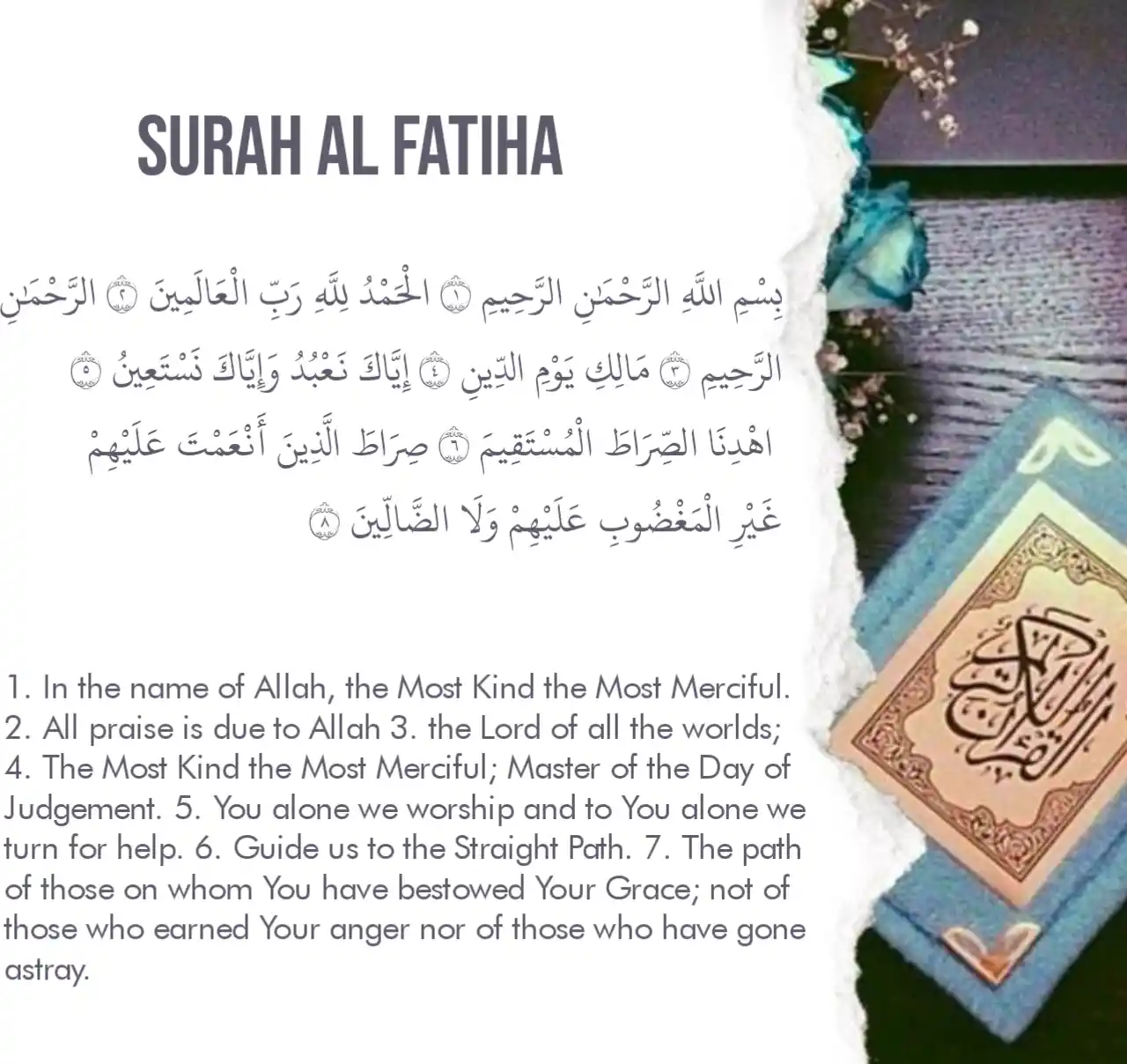

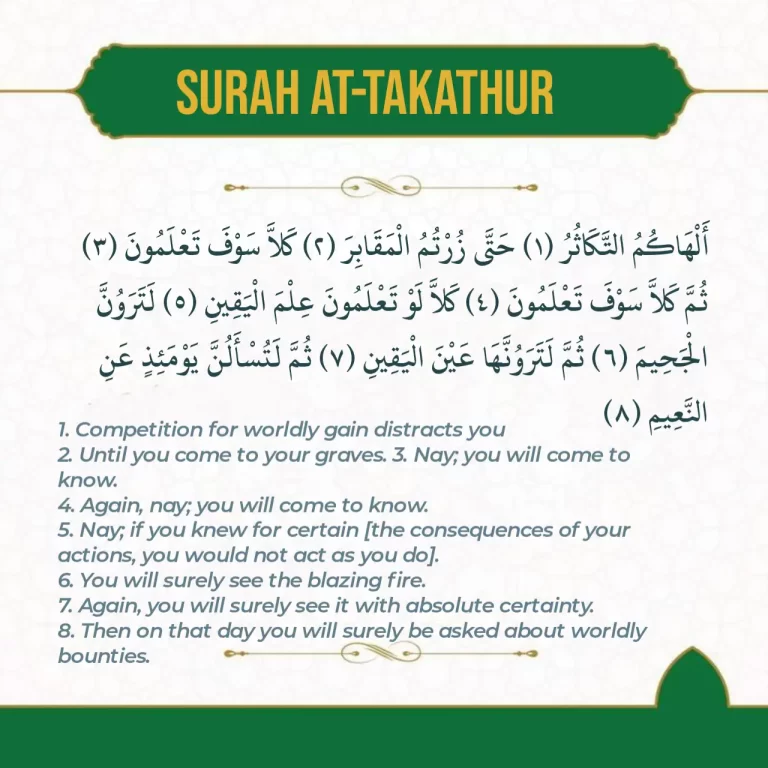
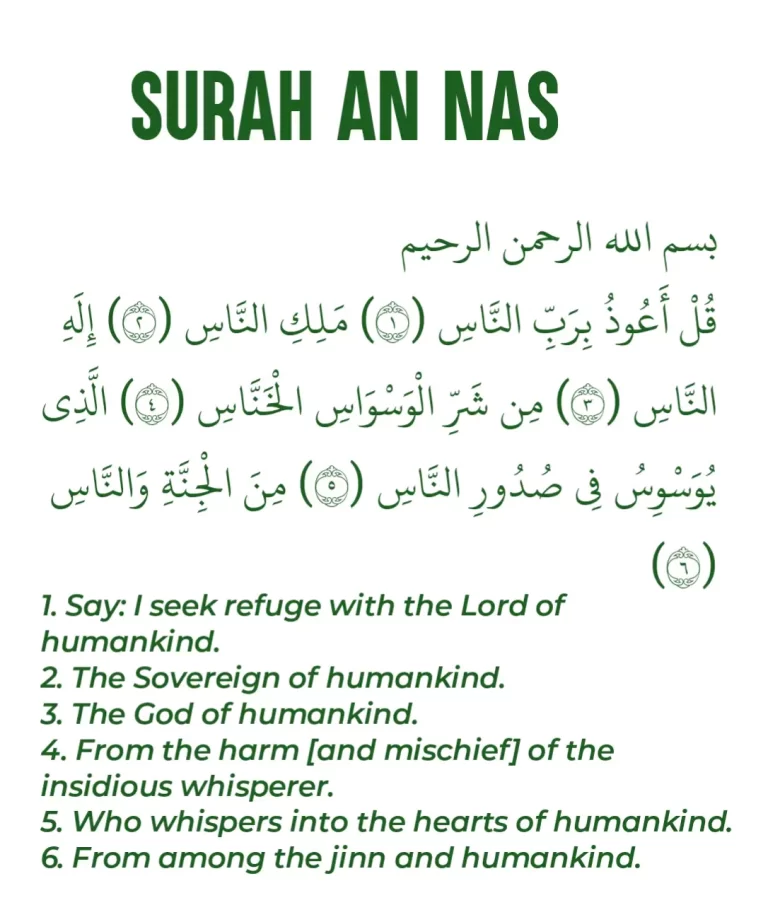

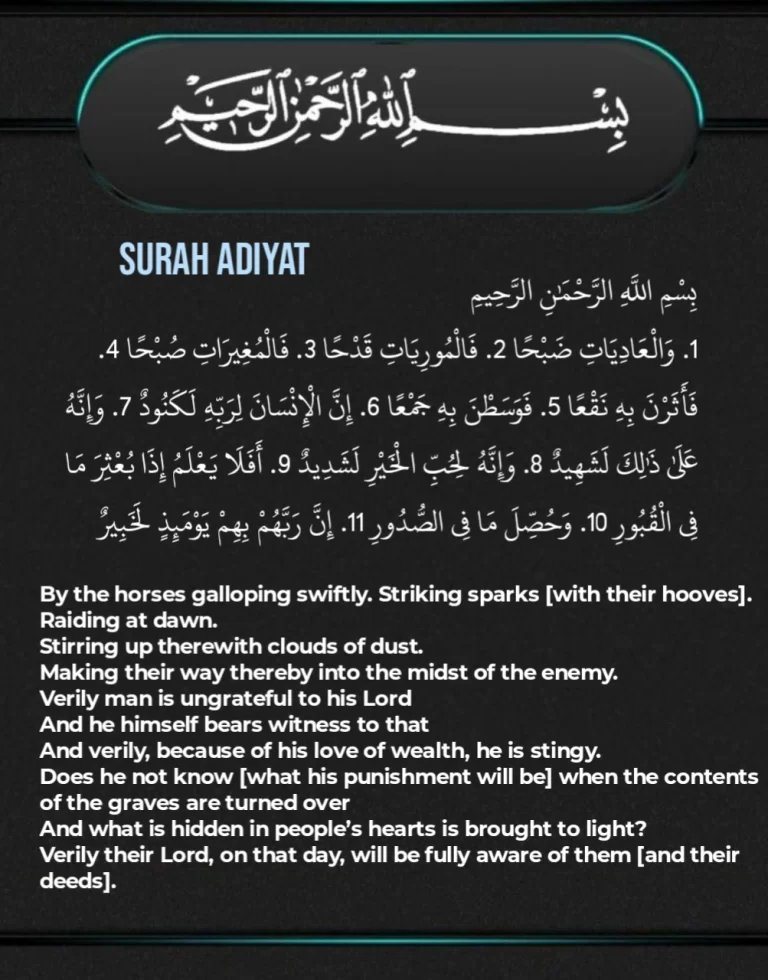
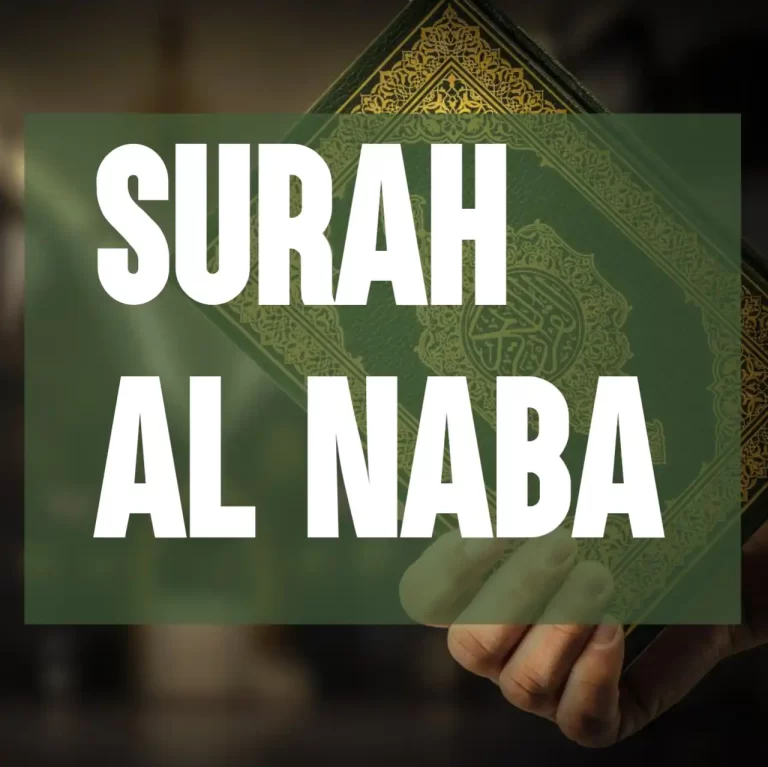
7 Comments